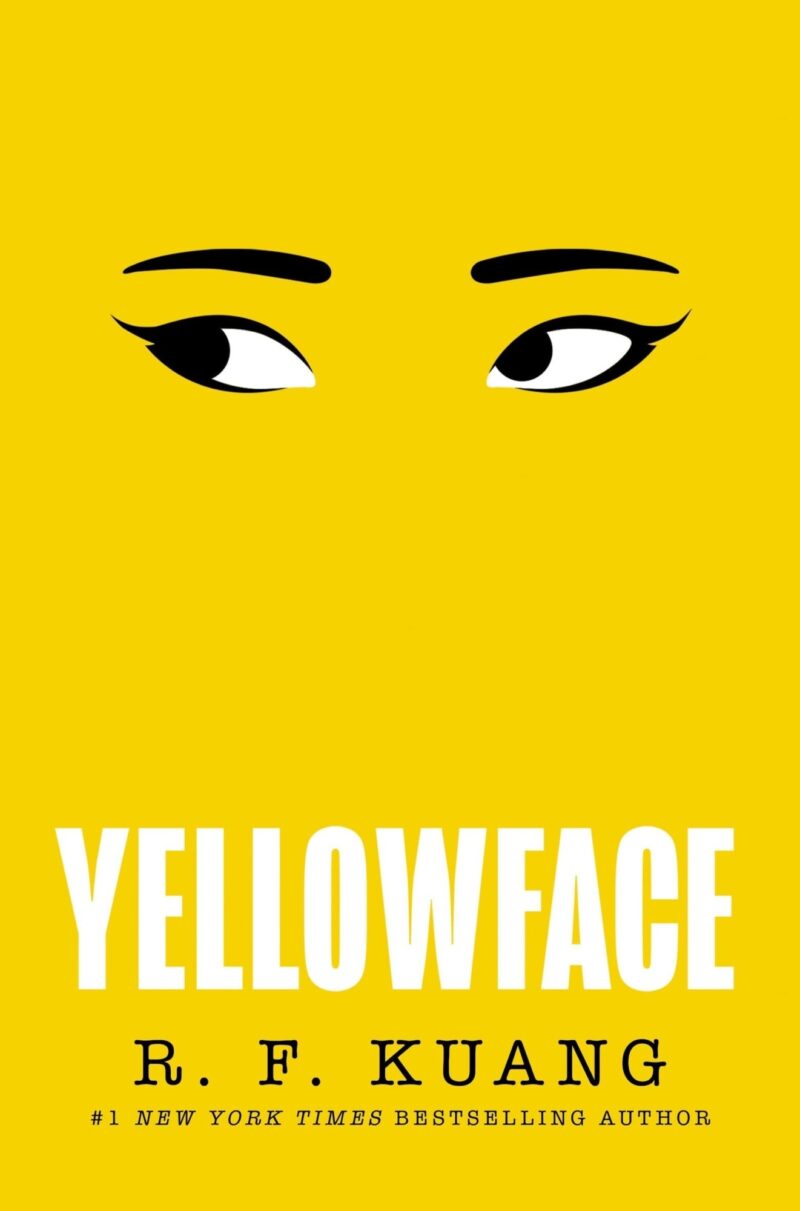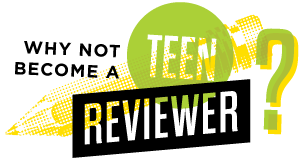Yes, "Yellowface" is good—but how are you interpreting it?
Review of Yellowface by R. F. Kuang
Written by Teen Writer Yuena Kim and edited by Aamina Mughal

Going into Yellowface, I was immediately enthralled. R. F. Kuang’s hallmarks—suffocating tension, her unflinching eye for critique, and messy-yet-compelling characters that horrify us, yet keep us engrossed in a compulsive, almost shameful pull—were all put on gleaming display.
Yet after finishing, I was more confused than I anticipated. Yellowface was addictive, entertaining, and important in all the ways I had yet to be able to articulate, but I was left with such a lasting feeling of dread. I would wholeheartedly thrust the book upon the hands of fellow POC readers to commiserate over but remain tentative when recommending it to a white audience. However, I recognize now that my hesitance would destroy the point of the novel. Yellowface, unlike Kuang’s other works, leaves room for ambiguity, interrogating readers where they stand in ongoing racial conflicts.
Yellowface centers around the contentious friendship between Athena Liu and June Hayward. Both are Yale alumni, but while Athena's writing career has flourished since her undergrad days, June struggles to find any sort of recognition. After Athena’s sudden death, June steals Athena's unfinished manuscript about the British Army’s exploitation of the Chinese Labour Corps during World War I and publishes it under her own name after rebranding to seem ambiguously Asian.
For many POC, June actualizes our deepest fears. As opposed to the overt, physical acts of racism, she represents the more insidious, deep-rooted prejudice that lies within claims of allyship, expressed by those as wanting to help. I’m not racist, June asserts in a myriad of ways throughout the novel, but why can’t I tell this story? Purely on grounds of my identity?
And June puts up a convincing front. Just like she argues, June does all the things that she supposedly should do—painstakingly researching the ins and outs of the Chinese Labour Corps, donating to an Asian scholarship fund from her revenues—bumping her up the rungs of the “qualification” ladder in the who is allowed to tell what story debacle.
The narrative is so layered because there is no singular person to blame. There’s June, who initiates the process; her publishing team who actively encourages her; and an easily lulled audience who only participates in the spiraling discourse for the sake of jumping on the hate bandwagon. No one escapes Kuang’s critical eye. Even Athena, the apparent victim, exhibits facets of the Highlander Syndrome and falls into the scarcity mentality. As June pointedly mentions, Athena never supported other POC writers and often played into, and maybe even relished, being the token non-white author.
Unlike Athena, June’s success was never anticipated. We watch voyeuristically as she claws her way to the top, doused in the same cloying panic as everything starts to crumble around her in an astute observation against the toxicity of cancel culture. Because the narrative is told in June’s first person, we are intimately entwined with June as an individual. And ironically, June’s long winded justifications, when lifted from the crazy situations they arise from, reflect logical questions regarding the double-edged sword of “staying in your own lane.” June’s desperation is so palpable that if her actions didn’t infuriate or horrify me with every passing page, I would want to support her too.
There’s a scene midway through the book where June is invited to speak at a panel of all Asian authors. Upon introductions, both the white moderator and June mispronounce a fellow author’s name. When corrected, June immediately takes it as humiliation and becomes defensive.
I read the passage mere moments after receiving an email informing me that I hadn’t received an email I should have gotten a week ago because they had incorrectly written my email address (which only contains my name), while still addressing me by my misspelled name in the email’s contents.
It’s futile, June’s actions seem to imply. No matter how we fight, we are blocked by those who claim to uplift us but snidely remark behind our backs in the most appalling forms of performative activism. Compiled from Kuang’s own experiences and from other women of color within the industry, each event is a testament to the injustices we confront daily. June’s absolute determination in attacking her critics’ reputation and her subsequent perverse satisfaction after destroying their careers only reinforces the intense dread of speaking out many POC hold, speaking to the debilitating fear that we may be punished for merely sticking up for what is right.
Narrators don’t have to be likable nor reliable, or even reflect the author’s true perspective, but I am apprehensive that readers will take this satirical tale and fail to recognize it as a critique on the same excuses people employ when disenfranchising marginalized voices. Time calls Yellowface “razor sharp” and critical review upon review laud it for its complex handling of representation. A small, nagging voice fears the acclaim from white readers differs from their POC counterparts, not for exposing the injustices we shoulder merely to survive, but because June airs grievances that certain individuals are now too afraid to utter aloud. Amidst the heat of the fallout, June bemoans the current state of publishing, looking fondly upon corporate office jobs where “being white does not make you boring and redundant but rather a perfectly average and desirable hire” (225). For too many, it repeats the unjust rhetoric we hear in response to the ongoing calls for diversity, when white has always been the default.
Yellowface artfully balances the thin line between critiquing the system through mocking the stereotypes that enforce it, and enforcing the status quo. At the Seattle stop of Yellowface’s promotional book tour, Kuang described that her books are never the remedy to the grand questions of race and representation. Avoiding the clean, idealistic happy endings, Kuang spoke of aiming to continue that discomfort to further probe inquiries. Kuang also warned of how strict guidelines solely permitting authors to write about their own identities further pigeonhole marginalized authors, only allowing for immigrant stories or tales of racial trauma. What made Yellowface initially so uncomfortable for me was because of how gripping June’s narrative voice was, how convincingly Kuang embraced June’s hypocrisy, which is what ultimately makes the novel so compelling. Hopefully, Yellowface’s success is not as a means for the literary world to self-congratulate—a relief, “surely we’re not as bad as June is”—but rather a bitter pill for the industry to swallow, an ironic critique and further point of contemplation regarding true inclusivity.
Perhaps the most explicit takeaway is during June’s rare introspective moment. In her brief moment of shame, she acknowledges, “I am an outsider, basking in their love under false pretenses” (121). Yellowface is not meant to be a balm to the ongoing discussions surrounding representation, but rather add fuel to the fire to reveal where the publishing industry—and by extension, all other areas—lack in its supposed commitment to anti-racism.
Yellowface was written by author R. F. Kuang and published on May 16, 2023. For more information see here.
Lead Photo: Yellowface (2023). Photo courtesy of Goodreads © 2023 Goodreads, Inc.
The TeenTix Newsroom is a group of teen writers led by the Teen Editorial Staff. For each review, Newsroom writers work individually with a teen editor to polish their writing for publication. The Teen Editorial Staff is made up of 6 teens who curate the review portion of the TeenTix blog. More information about the Teen Editorial Staff can be found HERE.
The TeenTix Press Corps promotes critical thinking, communication, and information literacy through criticism and journalism practice for teens. For more information about the Press Corps program see HERE.


